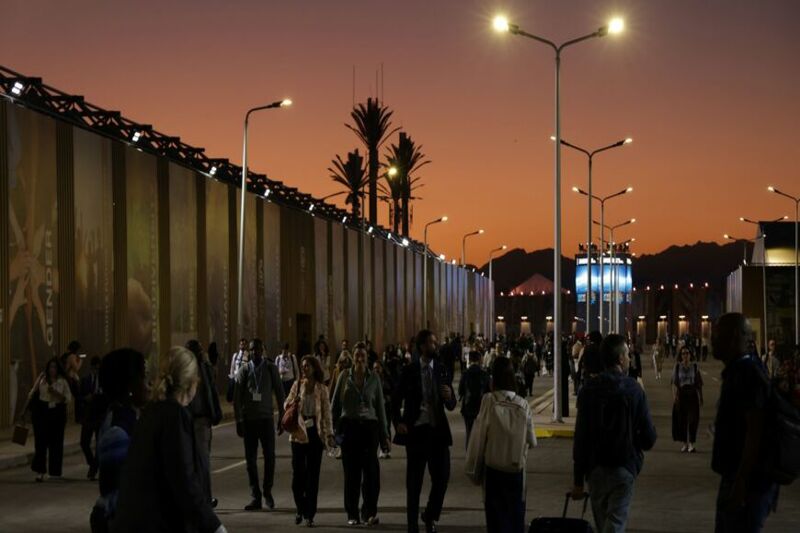The first carbon credit company in Egypt has been established by government officials, opening the door for a national carbon credit market to lower CO2 emissions.
On November 6, an agreement to establish Egypt’s first organisation to issue carbon credits was signed by the Agricultural Bank of Egypt, Libra Capital, and the Egyptian Exchange Holding Company for Capital Markets Development.
The voluntary carbon market, which allows companies to buy carbon credits to offset their CO2 emissions, also began operations on November 9. The two new organisations were established as the 27th Conference of the Parties or UN Conference on Climate Change (COP27) is taking place in Sharm al-Sheikh from November 6–18.
Businesses are not required to take part, but they will be able to recoup some of their investment in lowering carbon emissions because their carbon credits will be traded as securities on the recently established market.
According to Sarah Abdel-Kader, an environmental and sustainability engineer at the American University in Cairo’s Institute of Global Health and Human Ecology, “this step is crucial in boosting Egypt’s efforts to reduce CO2 emissions without adversely affecting economic development.” “The project supports the sustainable development strategy adopted by the Egyptian government.”
According to her, the new project will encourage the corporate sector to reduce CO2 emissions in order to maintain or even enhance earnings.
A carbon credit sets a price for harmful emissions and enables businesses to buy and sell carbon credits in accordance with the amount of their emissions.
“As a result, businesses have two incentives to cut their emissions of greenhouse gases. They must first spend money on additional credits if their emissions are higher than the authorities’ established limits. They can make money by reducing their emissions and selling any extra allowances, she continued.
According to data from the World Resources Institute, Egypt is the third-largest country in the Middle East and North Africa in terms of carbon emissions, behind Saudi Arabia and Iran.
According to Abdel-Kader, carbon dioxide is currently the main greenhouse gas warming the planet, and by cutting back on our emissions, “we may be able to prevent further climate damage,” she said. As a result, the carbon credit exchange is anticipated to aid in measurable, verifiable emission reductions from certified climate action projects.
She asserted that “the developed countries have an ethical commitment towards the developing countries and the planet” and that “the developed economies are responsible for much of the planet-warming greenhouse gases over the past 170 years.”
According to her, underdeveloped nations are more susceptible to climate change due to inadequate infrastructure and a lack of funding, yet they still have “legitimate development aspirations. These data may pave the way for collaboration between poor and industrialised nations in the fight against pollution and, ultimately, in the effort to mitigate climate change.
The goal of the new carbon market is to advance the green economy throughout the continent. Yasmine Fouad, Egypt’s minister of the environment, stated on November 9 that Egypt is prepared to support Africa during the transition.
Hjalmer Sommer, an environmentalist based in Denmark and proprietor of a climate programme initiative in Uganda, said: “It’s excellent that Egypt becomes the first mover into carbon credits in Africa.”
According to him, “we need to focus more on offsetting carbon, to secure the rainforest, and to make restrictions to the countries that allow cutting down the rainforest in South America and Africa” rather than just reducing pollution, he told Al-Monitor.
We need to plant more bamboo and hemp trees, which offset much more CO2 per acre, he said, calling for a ban on the world’s largest companies acquiring rainforest land.

